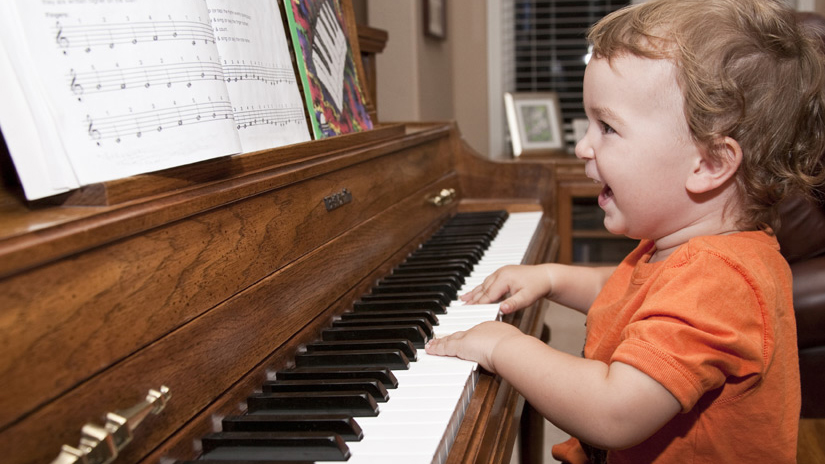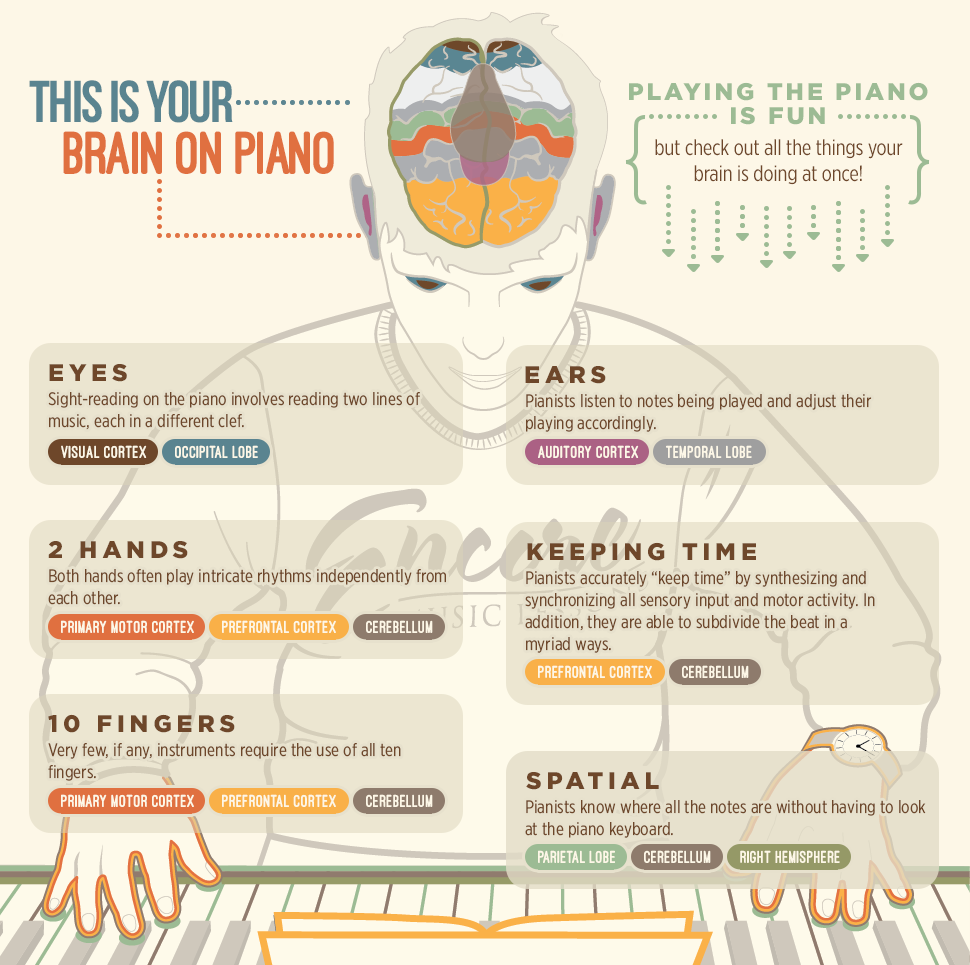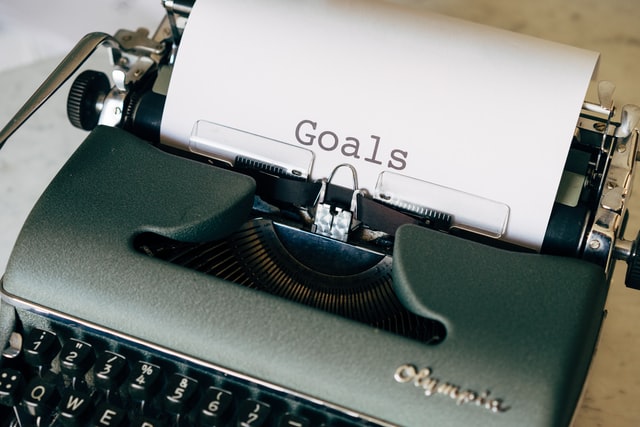How learning piano benefits the brain. It’s a mystery that is unravelling all the time as we start to understand more about neuroscience.
We all know music is a kind of magic. It has the power to tap directly into our emotions, and ignite our imaginations. It can make us bust a move, or move us to tears, sometimes in the course of a single song. But that’s not all it can do.
There’s growing scientific evidence that shows learning to play an instrument—and piano in particular—can actually make you smarter, happier, and healthier. The cognitive demands of learning piano could help with everything from planning skills and language development to reducing anxiety and even boosting memory!
How Learning Piano Benefits Your Brain
We explore the top ways in which playing the piano and learning this new skill can help your brain and aid your development and cognitive abilities, whether you start at 8 or you start at 80 years of age.
1. Piano Players Are Master Multitaskers
Learning to play piano means teaching your brain how to work on overdrive. Think about all the individual tasks your brain has to perform simultaneously: keeping time, following pitch, forming chords, maintaining posture, and controlling your breath, all while your right and left hands are operating independently from each other while ranging over 88 identical little black and white buttons.
Also, you might be operating the pedals and reading and interpreting sheet music too. Every time you sit down to play the piano, you’re giving your brain a monster workout, exercising your logical, creative, visual, auditory, emotional, and motor functions.
It makes sense, the more you think about it. To be a master pianist you need to reach the stage where you can juggle a lot of tasks, all at once. You build from the basics. For many people, introducing the second hand to their playing proves to be a huge challenge, but once you have this mastered you continue to move onto the next thing (playing more complex patterns, reading music) and you get to the point where the things that once seemed impossible now seem simple. This is just one way in which learning piano benefits your brain.
2. Learning Piano Actually Builds Brain Power
The mental demands of the piano are so significant that players’ brains are structured differently than other people’s. Breakthroughs in brain imaging have shown that playing piano strengthens the bridge between the right and left hemispheres of the brain, and makes the connections in the frontal lobe much more efficient. According to Mic that means pianists may have a serious leg up in terms of “problem-solving, language, spontaneity, decision making, and social behavior.”
The exciting thing about the studies into how learning piano benefits your brain is that many of the studies are still relatively new. Who knows what we are going to discover over the next 10-15 years.
A landmark study by Gottfried Schlaug in 1995 looked at the impact of playing the piano before reaching seven years old. It found that the “corpus callosum” or the axons that connect both sides of the brain, was unusually thick in the child pianists. Schlaug’s work had some skeptics to start with, and for one thing, people claimed that there might be a confusion between cause and effect. The corpus callosum might have been bigger initially in those subjects. However, further studies have given yet more insight.
Schlaug studied further, and while at Harvard Medical School was able to observe actual increases in brain capacity and the size of the corpus callosum among children who took up instruments. Specifically, two-handed instruments such as the piano were those that caused the most benefit. Having to play something different with both hands seems to sharpen the mind and build that brainpower.
3. Musicians Really Do Think Outside The Box
Researchers at Vanderbilt University have discovered that musicians are innately proficient in a creative technique they call “divergent thinking, which is the ability to come up with new solutions to open-ended, multifaceted problems.” Their work suggests that because playing music enhances communication between parts of the brain, musicians literally think about complex problems differently, and come up with more creative solutions.
This has benefits far, far beyond just playing instruments. Look at it this way, while a “convergent thinker” will see limited solutions to a problem, a divergent thinker is always looking for creative ways to solve that same issue. This makes convergent thinking extremely valuable to the workplace. It seems farfetched to say, but it is no exaggeration that musicians and pianists may come up with solutions to financial or logical problems that might not be seen by non-musicians.
There are theories that even the style of piano you are playing can influence the way your brain is wired to think. Music is one of the few disciplines that encourages improvisation and making things up on the spot. This means that your brain is being asked to do a lot of things at once. You need the factual, analytical data, such as the time signature, the key, and how to play specific notes, but at the same time, you are also using your brain in a creative way. You might be wondering what to play next, and literally composing as you go along. To watch someone improvise music is truly startling to a lot of us. These people are undeniably more likely to become “convergent thinkers”. Learning piano benefits your brain in a way that can’t be achieved by other disciplines. Not a lot of things require you to be using quite so much of your brain, and this leads to finding solutions and “thinking outside the box” in ways others may not.
4. Learning To Play Piano Is Beneficial At Any Age
While learning piano at a young age is a great way to develop discipline, self-esteem, and academic skills, it’s never too late to benefit from the power of playing. Adults who learn to play piano experience a decrease in depression, fatigue, and anxiety and an increase in memory, verbal communication, and a feeling of independence. Playing piano can also help alleviate symptoms of dementia, PTSD, and stroke, by improving cognition and dexterity, and reducing stress.
A study in Northwestern University found that elder people playing the piano experienced a number of different benefits. Memory and clarity are two of these benefits, and even playing the piano occasionally was found to have a big impact. The study has compared playing the piano to staying “mentally fit”.
It is remarkable how many people think that it is too late to learn the piano. Here at Pianu, we get people of all ages taking up our interactive course. It is vital to stress that it really doesn’t matter how old you are, playing the piano can have huge mental benefits, and grow or replenish those neural connections even as you get old.
The seminal study on this saw Dr. Jennifer MacRitchie put a group of seniors on a course of music lessons. It wasn’t piano-specific, so the good news is that a lot of instruments can be seen as beneficial. The findings of the study are that the instruments, and the lessons in playing them, allowed the seniors to more easily form connections between their hand muscles and brains.
Anecdotal evidence stacks up, too. Though there are many studies on older people learning how to play the piano, it is often by talking to the staff within a nursing home that you will hear the more heartwarming stories of the impact of music.
People with dementia can benefit from music, too. Psychology Today describes it as “a unique and powerful stimulus for reaffirming personal identity and social connectedness in individuals with dementia”.
This incredible video recently went viral, showing a man with dementia from the United Kingdom improvising a stunning piece on the piano.
It seems that music stays with us in ways some other things cannot. Much like learning a language.
5. The Social Aspect of Music
We will call this an indirect benefit of playing the piano. Naturally, we can’t claim that playing the piano all on your own forevermore will boost your social life. However, in the majority of cases, being able to play the piano opens up new doors and social opportunities.
One of the reasons we mention this is because the social side of life is so important. Maslow’s “Hierarchy of Needs” places love and belonging as one of the most important things humans need. We are social creatures.
Studies on healthy brains have shown that a social network and regularly experiencing social situations has a number of benefits including a feeling of support, a combative element against depression and even added stimulation in life. Some studies even show that it can help with memory. As people age, retire, and no longer spend as much time with others, it can be hard to maintain those benefits.
A hobby is arguably one of the best ways to keep your life more social. If you consider this, along with all of the other benefits we have mentioned regarding playing the piano, you will quickly see why it can be such a good option.
So, how can playing the piano lead to having a better social life?
- You can play with others. Join a band or just “jam” with friends.
- You can play for others. This is a great way to test yourself, but performing can have a number of benefits to your mental health, especially if you are struggling with self-actualization.
- You can get lessons. Having lessons can be about more than just learning the piano. While a lot of people are fine with self-teaching and learning online, some people feel that they would benefit from the social side of piano lessons.
- You can teach someone. This is something that is always a good idea for piano players, trying to teach your skills to others. It can help to cement it in your mind, and also give you a social activity to try with others.
Everyone is different. We know that some people will see playing the piano as quite a private activity, and this is absolutely fine. You don’t have to use it as your social activity, and it could be that you are perfectly happy with the current activities! The point is that one of the biggest benefits of taking up the piano for a lot of people is simply the fact that it gives them a new social outlet and a simple way to meet people.
6. Goal Setting and Piano
At the risk of sounding like a motivational speaker, setting goals in life is really important. Though it’s not a specific way learning piano helps your brain, an instrument is definitely one way that you can set measurable goals and be able to reach them. For instance, you can say to yourself “I want to be able to play a certain song by the new year”. There you have it. A goal has been set. What a lot of people don’t fully understand is what then happens in your brain.
This fascinating guide published at Inc.com delves more into how a goal can literally shape and rewire the human brain. The article talks of neuroplasticity, and how your brain can alter to be able to reach a goal you have set yourself.
A study of MS patients carried out at the University of Texas found that the patients who set themselves more ambitious goals related to their health and wellness had fewer symptoms or less severe issues than a separate control group. In the words of Inc.com, “goal-setting actually helped heal their brains”.
This is an incredible claim, but one that is starting to be backed up by science. Other aspects of the goal can make a big difference too. For example, how much you desire reaching your goal and also whether or not there is an emotional link can mean a more profound impact on your brain. If your goal is to learn how to play the piano so that you can make your parents proud, for instance, the rewiring and resetting of your brain could be a lot more drastic.
Of course, it goes without saying that setting goals for yourself is not exclusive to the piano. This isn’t solely a way that learning piano benefits your brain, and a goal of learning another skill or achieving something else can be just as beneficial. The point is that piano learning gives you structure and goals to work towards. If you are a student using the Pianu.com academy, the goals are already set out for you, in a way. The modular design of the course means you constantly have something to work toward.
Setting and working toward the goals might be a benefit in itself. However, there is another huge benefit. Achieving the goals! We’re going back to Maslow’s hierarchy of needs here. “Esteem needs” are a huge part of this. This means that the self-actualization of realizing a goal is not just something that you can enjoy and that gives you a little buzz, it’s something that every human needs for their emotional and mental health.
Yet again, this is something that we can’t claim is unique to instruments, but playing the piano is a fantastic way to set goals and achieve them, rewarding yourself in the process. You can work towards piano grades, or your own targets such as being able to play your favorite song, or writing and recording your own song. The point is that, according to the vital work of Maslow, learning a skill and seeing a goal through to completion can have immense benefits.
If you’ve ever had that feeling of “I achieved this” or “I made this happen” then you will probably know exactly what I am talking about here. We all need it, and piano can be a way to reach it.
7. Piano Can Help With Depression
Depression is the most prevalent mental health issues among adults around the world. Obviously, treating it can be a really complex task, and one for mental health professionals. However, most are in agreement that this is one of the ways piano benefits your brain; by making you feel better.
The fascinating study “A Prescription for Music” shows us a lot of anecdotal evidence as well as facts and figures regarding the link between depression and playing music. It was found that learning to play the piano led to adults reporting their self-esteem had grown (this links nicely with the “goal setting” benefit) and also that they felt more independent and had fewer isolated feelings. One comment that was seen regularly among the observations was that music created a way to escape from the rigors and stresses we all experience on a day to day life.
A study by Seinfield and colleagues also made a direct comparison between a group of adults learning to play the piano and a control group, who did not learn. The reports showed that those playing the instrument had a decrease in their distress but also felt less fatigued. There can be little doubt from the numerous studies that playing an instrument helps with mental health.
Music to Heal
A Harvard Health study entitled “How music can help you heal” also delves into the world of music therapy. Many of the findings are not specific to the piano, nor to playing an instrument. For some people, music therapy comes in the form of listening. The article has a fascinating take, and shows us yet more of the ways in which learning piano benefits your brain, and ways that simply listening to music can help. Of course, being immersed in music is bound to go hand-in-hand with deciding to become a pianist. The benefits are there for most people who take up the hobby of playing the piano.
Here are some of the incredible benefits music can have on the brain:
- Listening to music, playing music, and music therapy can impact your perception of pain. Music therapy can decrease the pain you feel. This leads to needing fewer pain killers, and can also have an impact on depression, helping people feel like they are in more control over chronic pain.
- Helping with anxiety and pain during operations and other clinical procedures. People listening to music throughout or before these procedures report feeling less anxious and then report less pain throughout the procedure.
- Music can lower your blood pressure. It sounds like a really incredible claim, but this study shows how listening to music can help with your blood pressure. If you are playing songs on the piano, you’re likely to be listening to them, too, perhaps this could be a linked benefit?
8. It Helps Children Develop Motor Skills
As we’ve already stated, learning how to play the piano can be suitable for people of any age, but there is no denying the fact that children get incredible benefits from it.
The way learning piano benefits your brain in those early, formative years can put you at a huge advantage. Many studies have shown that children who have music lessons outperform those who don’t. Once again, this is often seen as a matter of debate. Some people would argue that many high performing students are naturally better at playing instruments, rather than the benefits of playing the piano having an influence on academic performance.
However, it is generally accepted that playing the piano can help children’s development.
Evidence of assistance with motor skills comes from a study by Costa-Giomi. It showed that young people who had two years of piano lessons tended to improve far better in motor proficiency tests. A similar study by Hurwitz, Wolff, Bortnick and Kokas showed that after seven months of instruction, children were better at a task involving tapping keys in time with a metronome. Read more about both studies here.
These building blocks of our development are vital. The way we are all feeling our way around the world in the early years in our cognitive development can be aided by music, as is backed up by a number of studies.
9. Happiness
This is possibly the simplest of all of the ways in which learning piano benefits your brain. It will probably make you happier. The reasons why humankind have had such a close bond with music, in pretty much every historical civilization, is because people can see the benefits. The most obvious of these? Happiness.
Of course, you don’t necessarily have to be able to play the instrument to be happier. Listening to your favorite album might do the trick, but learning how to play the piano adds a further dimension to the happiness you can derive from music. The way we can build our confidence by learning, build a bigger social circle, feel better about our own skills, and generally fill our time with a happy and creative pursuit is perhaps the biggest benefit of all.
Make Your Own Benefits to Learning Piano
All of the evidence in this guide shows how much you can get out of learning how to play the piano, but the benefits and experience are slightly different for everyone who takes up the hobby. You might find that the piano gives you a social benefit, or you might find that it gives you alone time to escape. These two experiences might be totally different, but they are as valid as one another.
For some people, learning piano will help their brain in every way imaginable, and help them to build a career and feel better about every aspect of life. For other people, the piano will be a small hobby that gives them a lift.
Nobody can tell you exactly how to experience the piano and how learning piano benefits your brain might actually be different to someone else’s experience.
Conclusion
Tickling the ivories may not give you superpowers, but it’s clear that learning to play piano is one of the most powerful ways to exercise your mind, and soothe your soul. Further studies are going on all the time which are aiming to establish the exact ways in which the piano interacts with your brain. There is still a lot scientists haven’t totally worked out.
Most people are in agreement that learning the piano is a worthwhile pursuit and will have a number of clear benefits. If you’re interested in learning piano, you can do so from the comfort of your own home. Pianu offers interactive lessons that let you hone your skills at your own pace.














